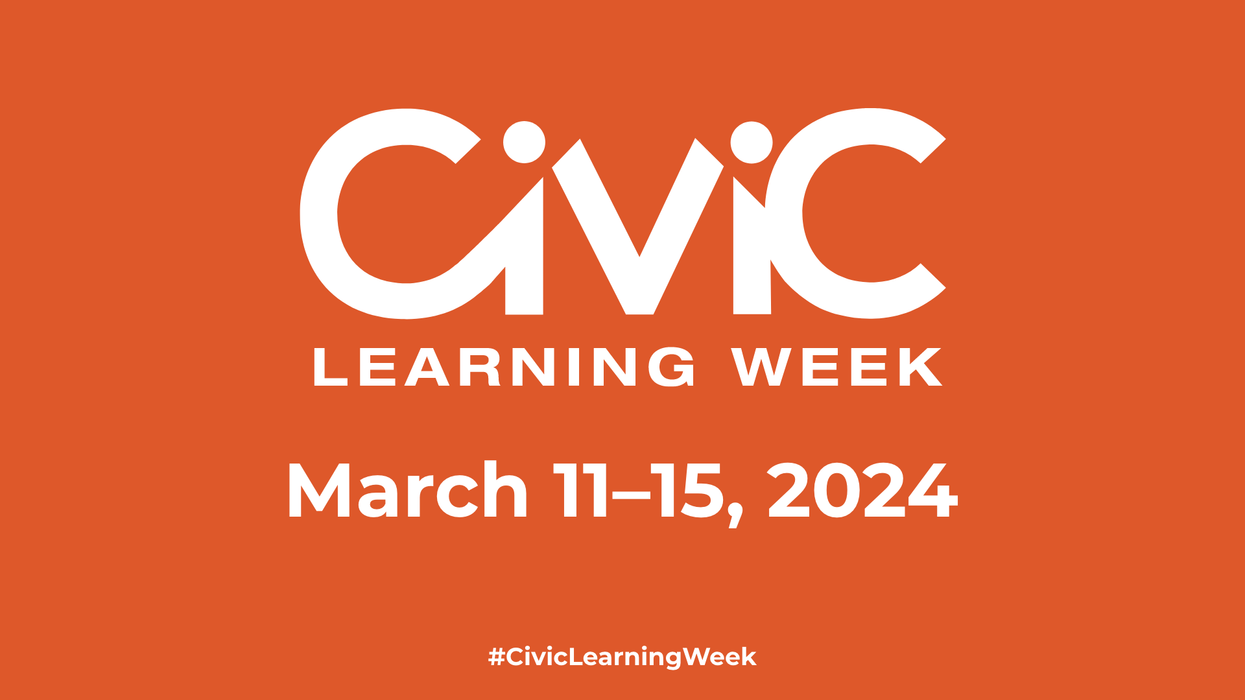Becvar is co-publisher of The Fulcrum and executive director of the Bridge Alliance Education Fund.
The bedrock of our democratic republic feels increasingly vulnerable to the tremors of misinformation, polarization and apathy. At the heart of these challenges lies a critical yet often overlooked solution: civic education.
The indispensable role of civic education in schools cannot be overstated, as it equips the next generation with the knowledge and skills necessary to participate thoughtfully and effectively in a democracy. Civic Learning Week, hosted by Bridge Alliance partner iCivics, kicks off March 11 and this year's theme, "2024 and Beyond: Civic Learning as a Unifying Force," couldn't be more timely. It serves as a national call to action, emphasizing civics as a pivotal, nonpartisan priority to combat polarization.
Civic learning is essential to ensuring every person across this country is equipped with the necessary tools to engage as members of our self-governing society. It’s hard to imagine a way through our current division without shared civic knowledge that research has repeatedly shown us isn’t widespread. The FrameWorks Institute’s recent article "Unpacking Americans’ Assumptions about Democracy" highlighted its research into how the public thinks about democracy and our political system. Its three primary findings gave some insight into not only how Americans' understanding of democracy complicates our national narratives but also served as a reminder of how critical of a role civic learning plays.
Understanding democracy beyond the ballot box
The first finding from the FrameWorks research is the prevalent conflation of democracy with the singular act of voting. While voting is a fundamental aspect of democracy, reducing democracy to just this act oversimplifies the rich tapestry of civic engagement, political advocacy, rights, responsibilities and governance that underpin our political system. This narrow view stifles public engagement with more nuanced aspects of democracy, such as understanding the interplay between different branches of government, and makes it a challenge to sort out situations that involve more than voting.
Democracy as more than just the American experience
The second finding reveals an assumption that “democracy” is synonymous with whatever the United States does, potentially fostering a sense of exceptionalism and complacency. If citizens have this perception, it may be difficult for them to recognize the need for reforms and the value of global democratic principles, potentially alienating them from identifying our system’s unique flaws – and strengths. This mindset risks equating dissatisfaction with our political system as a failure of democracy itself rather than our specific implementation of it, potentially driving disillusionment and curiosity about authoritarian alternatives.
The shadow of authoritarianism and fascism
Perhaps most concerning is the third finding; many lack a nuanced understanding of authoritarianism and fascism, recognizing them only as ‘bad” and perhaps the opposite of democracy. Because much of the populace equates democracy solely with voting; it is more difficult to then recognize, resist and counteract the authoritarian practices that do not involve voting. The absence of a clear understanding of what constitutes authoritarianism and fascism can also be a barrier to understanding the widespread use of “anti-democratic” as a label among political candidates.
Forging a path through civic learning
These gaps in perceptions of American democracy underscore the imperative for a robust civic education curriculum in schools. Civic learning should not only cover the mechanics of voting and government structure but also foster a deep understanding of democratic values, the importance of civic participation beyond elections, and the vigilance required to protect democracy from authoritarian tendencies. By embedding these principles into the fabric of our educational system, we empower young Americans to become informed, engaged and critical participants in democracy. In a time of deep division, this education supports the knowledge and skills to engage in productive dialogue across diverse perspectives and bridge divides.
The FrameWorks findings not only highlight critical challenges to our collective discussions about democracy but also chart a path forward through education. But civic learning is not solely the domain of schools; it's a societal commitment that we can all support. Engaging businesses, officialslibraries, and civic groups to champion civic learning is another crucial task we can commit to for our democracy's health and future. Civic learning isn't just educational policy; it's the cornerstone of our democracy.




















Trump & Hegseth gave Mark Kelly a huge 2028 gift